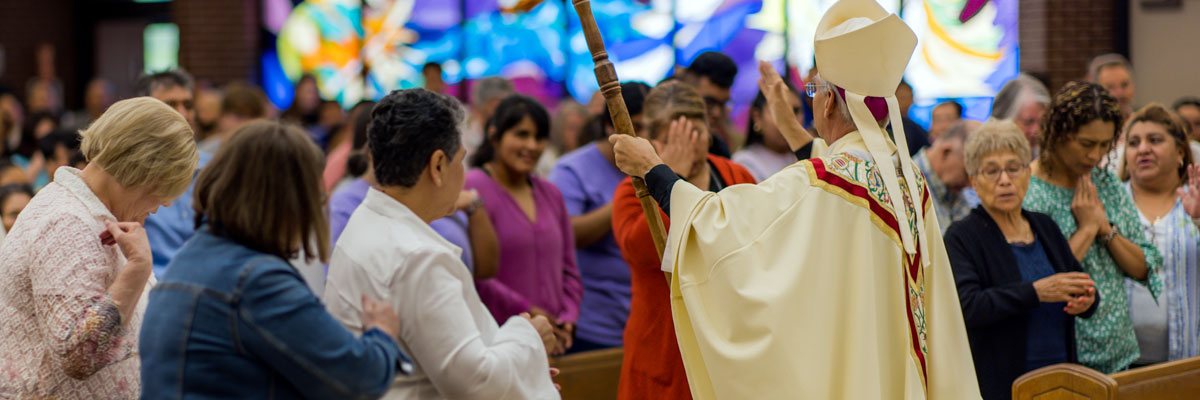Official Website of the
Catholic Diocese of Little Rock
Bishop clarifies pope's civil union comment
Published: October 22, 2020
Bishop Anthony B. Taylor issued the following statement, Oct. 22, 2020, to clarify Pope Francis' comments about same-sex civil unions during a brief passage in the documentary film, "Francesco," which premiered in Rome Oct. 21, 2020.
"The major theme of Pope Francis’ apostolic ministry has been to call the Church to reach out with mercy to those on the margins. This is the mercy of coming close to Jesus. Mercy is the lens through which Pope Francis calls us to view and respond to situations of poverty, migration, racial and income inequality, the environment and people affected by unjust discrimination — among whom are homosexuals, who have been marginalized throughout history.
 "We can debate points of theology but debates seldom change hearts and usually lead to both parties clinging all the more tenaciously to the truth as they understand it. Mercy as a concept separate from Jesus can end up being simply license, but when we truly try to listen to the other with a heart conformed to that of Jesus, we begin to look for ways to remedy situations that disadvantage those on the margin.
"We can debate points of theology but debates seldom change hearts and usually lead to both parties clinging all the more tenaciously to the truth as they understand it. Mercy as a concept separate from Jesus can end up being simply license, but when we truly try to listen to the other with a heart conformed to that of Jesus, we begin to look for ways to remedy situations that disadvantage those on the margin.
"I believe that is why, without changing any of the teaching of the Church about the immorality of homosexual acts, Pope Francis has tried to find ways to reassure homosexuals that God loves them, that they have a place in the life of the Church and that we have an obligation to remove all the disadvantages that they suffer unjustly.
"One of these injustices is the fact that in most societies the legal union of civil marriage conveys tangential benefits to incentivize marriage that are not intrinsically connected to marriage itself, and are denied to those who are not in a legal union. That is the background for Pope Francis’ statement about civil unions in the documentary 'Francesco,' which premiered in the Rome Film Festival on Oct. 21, 2020. I note that comments in an interview like this can be insightful but are not meant to articulate doctrine. Here is what he said:
"'Homosexual people have the right to be in a family. They are children of God. You can’t kick someone out of a family nor make their life miserable for this. What we have to have is a civil union law; that way people are legally covered.'
"That’s his concern. Civil unions of homosexuals would grant most of the tangential benefits of marriage without being a true marriage, which is of course impossible for a homosexual union, and thus a misnomer, even though U.S. law describes it as marriage. The Catechism of the Catholic Church teaches that marriage by its very nature is 'ordered to the good of the couple, as well as to the generation and education of children.' (catechism, no. 1660) One look at our bodies reveals that both the procreation of children and the complete unitive act of intercourse requires physical complementarity, which are not present in a same-sex union.
"However, a stable bond between persons of the same sex has the possibility of offering some good for those persons, especially when that bond is chaste in nature. Notice that this union is civil, solely for the purpose of ensuring civil benefits. It has no status in Church law.
"Some of the tangential civil benefits of marriage that could be made available to homosexuals in a civil union are: health insurance benefits, surviving partner inheritance benefits, joint tax return benefits, medical decision-making, hospital visitation rights, funeral decision-making and tax free transfer of property.
"This statement regarding civil unions is one small expression of a much broader vision of inclusion that Pope Francis has proclaimed throughout his papacy.
"Sincerely in Christ,
+Anthony B. Taylor
Bishop of Little Rock"









